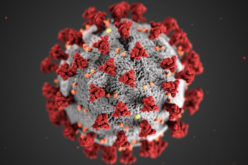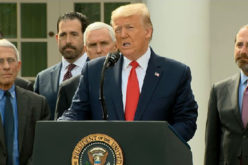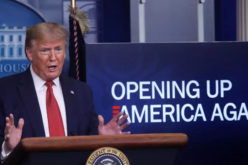India will extend a strict nationwide lockdown imposed last month to stop the spread of the coronavirus, a top official says.
On Saturday, Prime Minister Narendra Modi held a video conference with state ministers, and many of them urged the government to prolong the measure.
Delhi’s chief minister said Mr Modi had agreed to extend the lockdown, due to end on Tuesday, without giving details.
It comes amid concerns about how the lockdown has hit the country’s poorest.
The spread of the virus has been varied in India with some states seeing bigger jumps in cases, despite the shutdown. Millions of migrant workers have been left jobless with the poorest suffering most.
India has confirmed about 8,000 infections and 288 deaths, according to a tally by US-based Johns Hopkins University, which is tracking the disease globally. The true figures, however, are thought to be far higher.
On Twitter, Delhi Chief Minister Arvind Kejriwal said Mr Modi had “taken [a] correct decision to extend [the] lockdown”, without saying for how long the extension would be.
“If it is stopped now, all gains would be lost. To consolidate, it is [important] to extend it.”
Later on Saturday, an online post from the prime minister’s office said the “extensive deliberations” with chief ministers had been fruitful and there “seems to be a consensus” to extend the lockdown measures two weeks.
Mr Modi also described the next three to four weeks as “critical” to seeing the impact of measures taken so far.
There has been no official confirmation to extend the national lockdown, but some state-wide extensions have now been announced.
On 24 March, India shut its $2.9 trillion (£2.3tn) economy, closing its businesses and issuing strict stay-at-home orders to more than a billion people. Air, road and rail transport systems were suspended.
As testing has ramped up, the true picture is emerging. The virus is beginning to spread through dense communities and new clusters of infection are being reported every day. Lifting the lockdown could easily risk triggering a fresh wave of infections.
A harsh lockdown is certain to slow down the disease. Virologists I spoke to believe India is still at an early stage of the infection. The country still doesn’t have enough data on the transmissibility of the virus or even how many people could have been infected and recovered to develop adequate herd immunity.
Not surprisingly, the lockdown is already hurting the economy. Many of the early hotspots are economic growth engines and contribute heavily in revenues to the exchequer. Mumbai, India’s financial capital and Maharashtra’s main city, accounts for more than a third of overall tax collection.
Earlier, hundreds of angry migrant workers stuck in the western city of Surat in Gujarat defied the restrictions to demand they be allowed to return home after reportedly hearing the shutdown was to be extended.
The migrants blocked roads, vandalised properties and set fire to tyres and vehicles while some threw stones. Large numbers of police have been sent to the area, and about 80 migrants have been detained.
Mr Modi imposed a nationwide lockdown on 25 March, announced with little warning, leaving millions stranded and without food.
The country’s 1.3 billion people are banned from leaving their homes, all non-essential businesses have been closed and almost all public gatherings are banned.
There are fears that a major coronavirus outbreak in the country – one of the world’s most densely populated – could result in a humanitarian catastrophe.










